The Bowers & Wilkins PX5 presented itself in the test as a light, robust everyday companion with a long ANC runtime and excellent sound. In combination with the high level of comfort and a price of currently 200 USD, it is a perfect choice. However, it does not work passively, and the telephony is also not convincing.
The Sennheiser Momentum 3 Wireless convinces in the test as over-ear headphones made of stainless steel and leather with an excellent sound that belongs to the best in this price range, very comfortable to wear, good features, useful functions and effective ANC. Not every function is problem-free in everyday life.
Pros and Cons
| Bowers & Wilkins PX5 | Sennheiser Momentum 3 |
| Consistent audio delivery | Good noise isolation performance |
| Excellent build quality | Tile and NFC integration |
| Great sound quality | Look and feel the money’s-worth |
| Support for aptX Adaptive | Comfortable and very well-built design |
| Mediocre stability | Leaky at high volumes |
The PX5, Bowers & Wilkins has wireless on-ear headphones on offer that offer adaptive noise cancellation (ANC). Thanks to its light, compact design with a weight of only 241 g, it should serve as a constant companion in everyday life. Bowers & Wilkins uses a carbon fibre composite material to ensure a low weight with simultaneous stability and resilience.
In addition to the headphones, the scope of delivery includes a USB-C to USB-A charging cable, a 3.5 mm audio cable and a transport bag with a rubber band fastener. Two cables can be stored in a small side compartment inside.
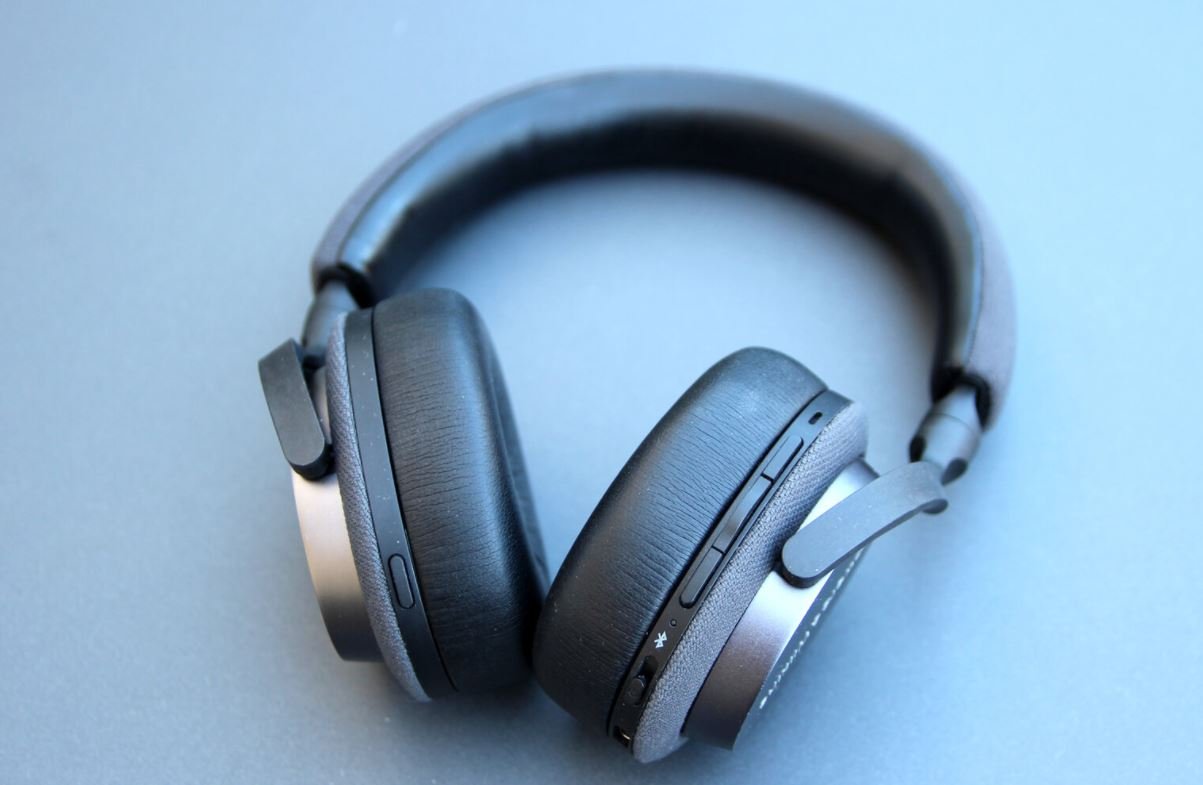
The Sennheiser Momentum 3 Wireless is the third generation of the company’s premium wireless headphones series. It should offer an excellent sound and combine modern technologies with a modern design. In addition to active noise suppression, the support of voice assistants and switching on and off by folding the over-ear headphones, natural leather and matt steel should also contribute. The recommended retail price of the Momentum 3 Wireless is now 349 USD after an initial 399 USD.
In addition to the headphones themselves, the buyer receives an audio/analogue cable with a 3.5 mm jack plug, a USB-C to USB-A adapter, a USB-C cable and a transport bag. In this, the headphones can be folded up. There is no microphone or controls on the jack cable.
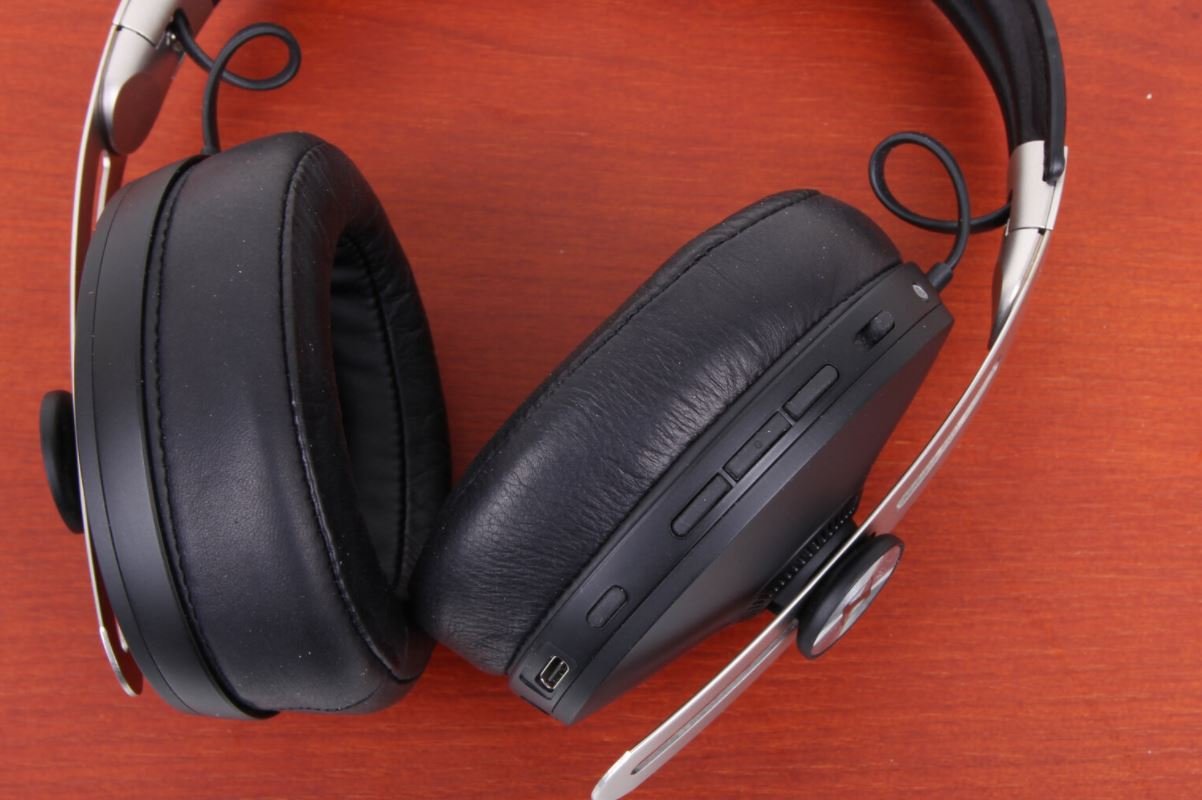
Specification
| Bowers & Wilkins PX5 | Sennheiser Momentum 3 | |
| $ | CHECK PRICE | CHECK PRICE |
| Brand | Bower & Wilkins | Sennheiser |
| Model | PX5 | Momentum 3 |
| Released | 17 October 2019 | Nov 11, 2019 |
| Dimension | 221 x 160 x 71 mm | 170 x 200 mm |
| Weight | 254 g | 305 g |
| Earpiece Connection | Wireless | Wireless |
| Type | Over-Ear | Over-Ear |
| Foldable | No | No |
| Frequency Response | 10 Hz to 30 kHz | 6 Hz to 23 kHz |
| Sensitivity | 111 db | 99 dB |
| Colours | Grey, Blue | Black |
| Driver | 35.6 mm | 42 mm |
| ANC | Yes | Yes |
| Impedance | 20 Ohms | 470 Ohms |
| Controls | Yes | Yes |
| Audio Connector | 3.5 mm | 3.5 mm |
| Bluetooth Profiles | A2DP, AVRCP, GATT, HFP, HSP | AAC, SBC, aptX, aptX LL |
| Battery Life | 25 hrs | 17 hrs |
| Charging Time | 2 hours | 3 hours |
| Bluetooth Version | 5.0 v | 5.0 v |
Design
The design of the PX5 is excellent. The carbon fibre composite material on the temple is easy to grip and allows the size to be continuously adjusted without unintentionally readjusted. The cables are laid inside in a groove. The joints also appear remarkably stable. The woven fabric outside ear cups and the headband offers something for the ears and the head; on the other hand, artificial leather is used inside.
The earpads are comfortable to wear and can easily be exchanged by the buyer. To do this, they are turned a little and then removed. They are fixed at three points with a bayonet lock. If you remove the ear pads, you can also see the drivers of the PX5.
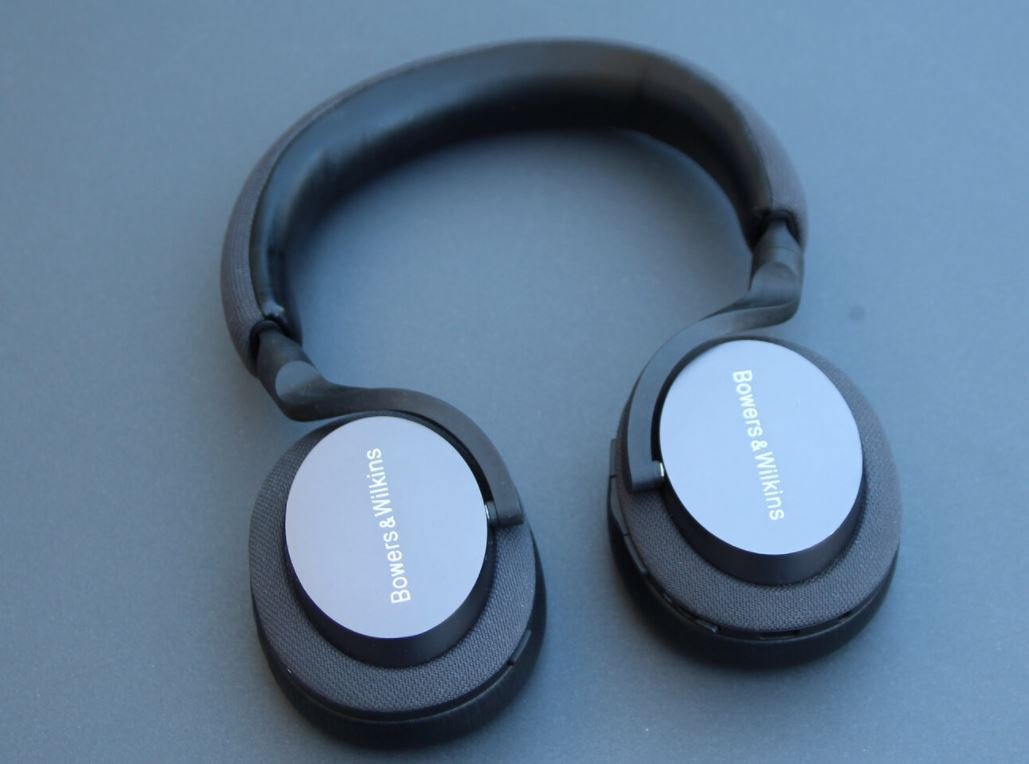
The Sennheiser Momentum 3 Wireless uses soft ear pads and a headband made of genuine leather. The temples are made of bead-blasted stainless steel and are intended to continue the puristic design of the series. In their guidance, the auricles are shifted for individual support. At this point, the hold is a little too loose because the auricles can be moved too quickly in the guide, which happens again and again unintentionally when you put them on and take them off frequently.
The Sennheiser Momentum 3 Wireless sits very comfortably thanks to the soft padding and offers a perfect hold in everyday life. The isolation from the outside is high. As soon as music is played, you can no longer perceive ambient noise. However, for extensive sport, the dead weight is too high with fast movements to keep it safe over the long term.
The user himself can exchange the ear pads. It is advisable also to remove the thin plastic frame to put on the new earpad.
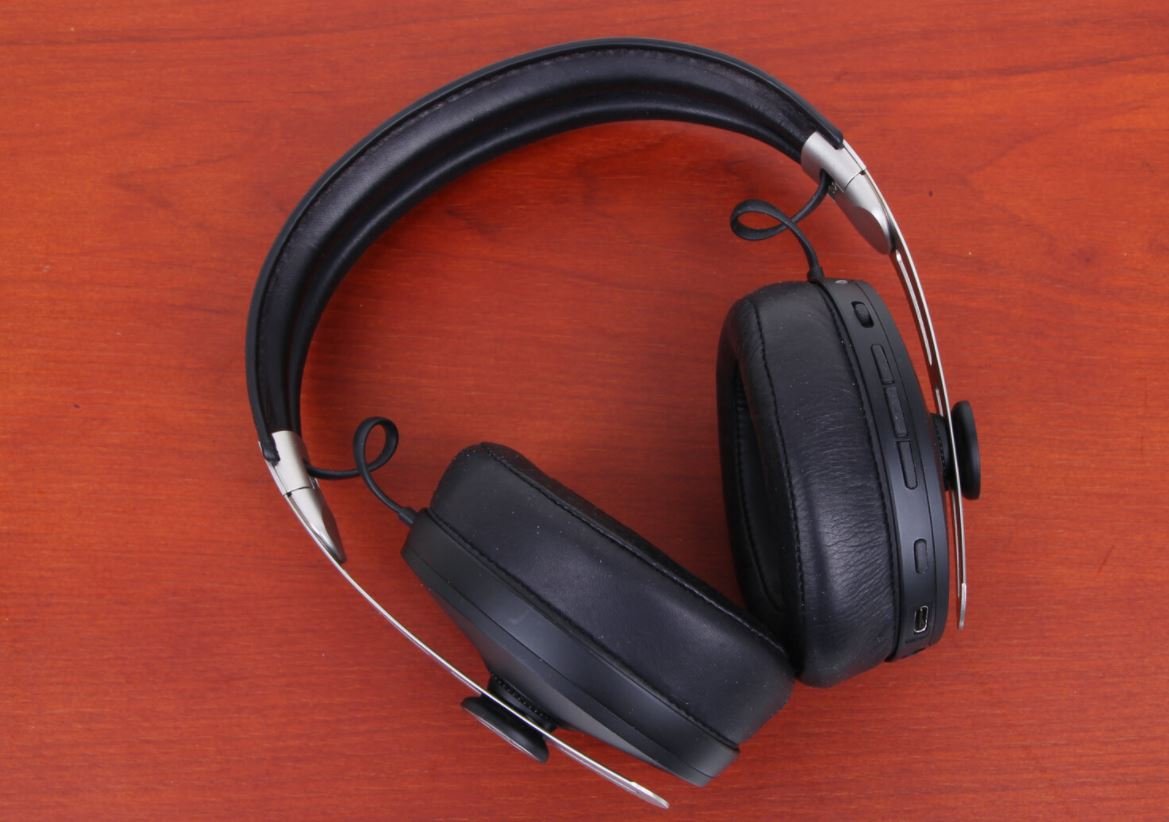
Connectivity
In terms of technology, Bowers & Wilkins relies on Bluetooth 5.0 and the audio codecs SBC, AAC and aptX Adaptive, which is also used in the Montblanc MB 01 (test) and playback with up to 24 bits at 48 kHz and a data rate between 276 and 420 kbit / s enabled. aptX Adaptive combines aptX LL and aptX HD in one standard. The Android smartphone used in the test still uses aptX HD due to the lack of aptX Adaptive, as the Beyerdynamic Amiron wireless copper (test)supports. In addition, despite its design as on-ear headphones, the PX5 offers adaptive ANC to protect the wearer from annoying ambient noise. In terms of frequency response, the PX5 goes further than conventional headphones and achieves 20 Hz to 20 kHz and supports an interval from 10 Hz to 30 kHz. The dynamic drivers have a diameter of around 35 mm.
Bowers & Wilkins has placed most of the controls on the right auricle. In the lower area is the switch the headphones on/off, which by holding it in the top position triggers another pairing process. There are three buttons above the Bluetooth LED, the outer ones control the volume, and the middle one starts or pauses playback. The middle button is slightly raised, which is beneficial for palpation. Nevertheless, you have to get used to the distinction before using all three keys accurately.
The middle button also serves as a multifunction button to skip tracks back and forth by pressing it two or three times. In addition, calls are accepted, hung up or rejected through them. The PX5 does not have a button for starting the smartphone’s voice assistant.
The ANC button, which the active noise suppression is controlled, is located on the left auricle. It can be used to switch through the ANC modes “Off”, “High”, “Low”, and “Auto” if it is pressed briefly. If held down, the transparency mode, called “ambient switching” by B&W, can also be activated. A short press again deactivates it.
The Bowers & Wilkins PX5 also offers a function that automatically pauses and resumes playback when the headphones are removed. The PX5 is sufficient to lift one auricle from the ear, so the headphones do not have to be removed entirely. If you let go of the auricle, the music will start playing again. In practice, this works reliably, although pausing the music takes almost a second. Unlike the Montblanc MB 01, the B&W PX5 has no problems resuming the music.
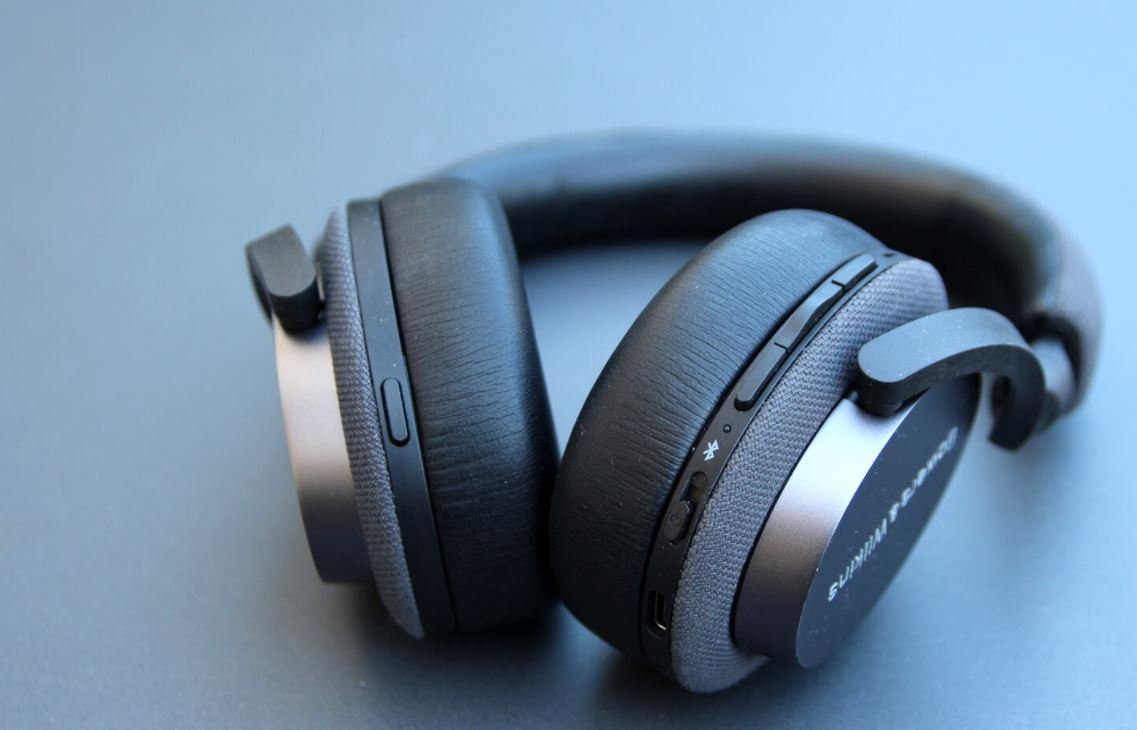
The Sennheiser Momentum 3 Wireless uses Bluetooth 5.0 for radio transmission. It also supports Bluetooth Multi-Connect, so that several end devices can be connected to the headphones simultaneously to be able to switch playback quickly.
The dynamic drivers in the auricles measure 42 mm in diameter and support an extended frequency range from 6 Hz to 22 kHz. The weight of the over-ear headphones is 306 g. In addition to the SBC audio codec, Sennheiser AAC and Qualcomm’s support aptX and aptX LL (Low Latency), which promises a short delay between sound and image when playing video or playing games. AptX HD, as supported by the Beyerdynamic Amiron wireless copper, is missing in the Sennheiser headphones.
Sennheiser has also teamed up with the Tile tracker service. The Momentum 3 Wireless is registered in the Tile app, you can locate it via Bluetooth if you have lost it. Your Bluetooth signal is used, and the signals from other Tile users who have activated it. Therefore, the usefulness of the function is heavily dependent on how many people near the lost headphones are using Tile.
The headphones switch on and off automatically when they are unfolded or folded up. This works reliably in the test if you carefully close it. If desired, the headphones can also be switched off using a button.
In addition, the Momentum 3 Wireless has sensors that allow the music playback to be paused automatically when the headphones are removed and the music to be continued automatically when the headphones are put back on. The function is used; the headphones should be left for 5 seconds each time they are switched on before they are put on to calibrate them. This takes away some of its everyday utility. In practice, this “smart pause” function always works when it is wanted, but sometimes also when it is not wanted. If you move around a lot with the headphones on, you should deactivate the function in the Sennheiser Smart Control app. Otherwise, the movement will trigger it again and again.
The controls on the right auricle are used for actual operation. Here are four buttons, a switch, the jack connector for wired operation and the USB-C connector for charging the headphones.
The middle button is provided with numerous central functions. It is used to start, pause and resume playback, jump back and forth between tracks and rewind them by pressing several times. This key is also used to accept calls. The buttons placed directly next to it, on the other hand, are for volume control.
The button placed under these 3 buttons starts the pairing process of the headphones when it is pressed for 5 seconds, but also calls up a voice assistant such as the Google Assistant, Siri or, if set accordingly, Amazon Alexa.
The top switch activates and deactivates active noise suppression or “Transparent Hearing”, in which ambient noise is let through to the wearer’s ears via the microphones. Both functions are switched off; the middle position indicates the use of ANC and the lower rocker position can be used to switch “Transparent Hearing” on and off.
All control elements are delimited, easy to feel and offer clear pressure points. Incorrect entries are ruled out as there is no touch.

Sound
As usual for on-ear headphones, the PX5 does not completely isolate the wearer from the outside world, but it does. Calls can still be made without music playback, but not when playing music.
The sound of the PX5 is accompanied by a very low noise in every operating mode. With ANC on “High,” it is more prominent, but it is still quiet and can only be heard when there is absolute silence. The noise with ANC is more subtle than with Sony’s WH-100XM3. It is not annoying when playing music. Nevertheless, headphones without activated ANC should not be noisy at all.
The sound of the PX5 is warm but still naturally tuned, so the bass comes into its own and is powerful without booming or booming.
By activating the ANC, the PX5 does not lose any of its sound quality, apart from the low noise level, but rather gains a bit of fullness in the bass range without becoming too bass-heavy. In practice, therefore, nothing speaks against leaving ANC activated if you do not want to achieve the highest battery life. Which mode you use depends not only on the environment but also on what music you listen to and how much you want to isolate yourself. Quiet songs in a quiet environment sound best on “Low,” with loud, powerful sounds. “High” can be used without any problems. Alternatively, you can let the PX5 choose the level of noise suppression on “Auto” itself, which also achieves excellent results.
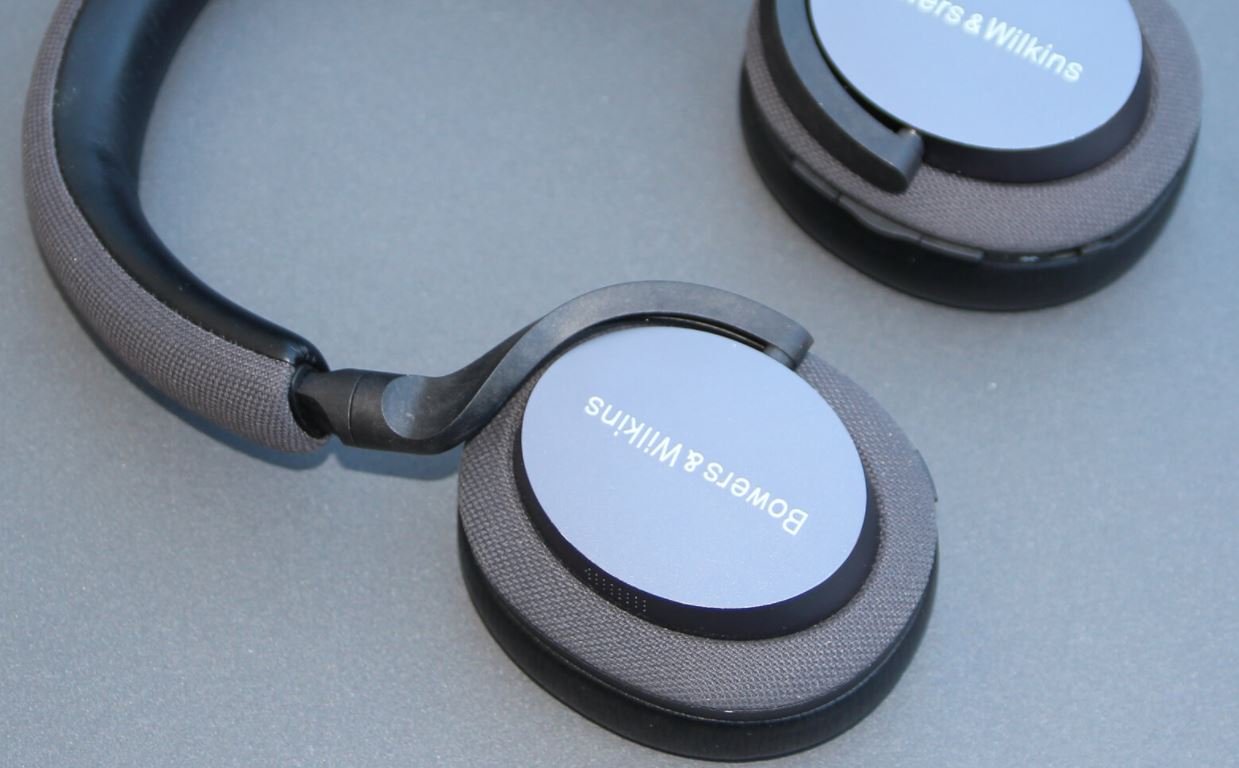
The sound of the Sennheiser Momentum 3 Wireless is excellent. It is not entirely neutral but relatively warm, as usual for this device class, without exaggerating. The manufacturer delivers a differentiated, transparent sound that also offers powerful bass. Even with soft tones, playing low frequencies is no problem for the headphones. However, the basses lose dynamics and tend to have a minimally muffled sound without booming – but this is still better in terms of sound than most of the competition. The mids and highs are played out cleanly and clearly. Voices and also classical pieces are reproduced very well. Details are not lost in the mids or highs.
This also applies to use via USB-C and passive operation via a jack cable because the headphones’ sound is also convincing in analog mode, which shows that Sennheiser does not need technical assistance with the audio drivers.
The Sennheiser Momentum 3 Wireless suits pop and rock, jazz, or classical music – very different from the Marshall Monitor II ANC.
The ANC can be switched between “Maximum,” “Anti-Wind,” and “Anti-Pressure” in the app. While “Maximum” is supposed to block out most of the background noise, “Anti-Wind” is mainly supposed to avoid disturbing noises caused by wind, which, however, eliminates less noise. However, the latter is also a feature of “anti-pressure,” which should offer the most pleasant wearing comfort.
The active noise suppression of the Sennheiser Momentum 3 Wireless works well and ensures quiet, especially at low frequencies. The typical driving noise of the train is thus effectively switched off, while higher frequencies and harsh tones are less filtered. ANC does not harm the sound. Nevertheless, the Momentum 3 Wireless also offers good noise suppression but does not quite close to Sony’s WH-1000XM3 or the Bose Noise Canceling Headphones 700. Touching the volume buttons or the auricle through an aircraft seat when the ANC is activated is not a problem and does not cause unpleasant noises.
The Momentum 3 Wireless is also suitable for blocking out disturbing ambient noises in the office, for example, without being distracted by music. The ANC can also be used without playing music. However, the ANC is not entirely free of noise. It is noticeable in silence, but it no longer has a negative impact on music playback.

Battery Life
The PX5’s battery life is officially up to 25 hours when active noise cancellation. A quick charge function ensures that after only 15 minutes of charging, up to 5 hours of audio playback are possible again. The B&W PX5 is charged via a USB-C connection. A charging cable from USB-C to USB-A is included with the product. It takes around 3 hours to charge the headphones fully. The USB-C connection is installed vertically downwards on the right auricle.
Sennheiser uses 4 external microphones for active noise suppression and “transparent hearing”. Two additional beamforming array microphones are added for telephony. The battery life with activated noise cancellation is officially 17 hours. If the headphones have to be fully charged, this takes almost 3 hours. The quick charge function is helpful in this case, with which 1.5 hours of music can be heard again after just 10 minutes of charging.
Conclusion!
The Bowers & Wilkins combines an excellent, clear, and detailed sound and good ANC with a good mixture of comfort and mobility. They are lighter and smaller than over-ear headphones. Still, They offer excellent ergonomics and a high level of wearing comfort, which does not develop an uncomfortable feeling of pressure even after hours. If the battery is empty, the headphones also go silent. The PX5 is also not a headset replacement; it is only suitable for telephony to a minimal extent because the carrier is only dull and challenging to understand.
The Sennheiser Momentum 3 Wireless is convincing as an overall package with an excellent sound, making it one of the leading headphones in this category and an excellent ANC, but with slightly better competition. The headphones are convincing both at home and when traveling. Above all, the Sony WH-1000XM3 is only 260 USD but the biggest competition for the Momentum Wireless, which currently costs 350 USD.


